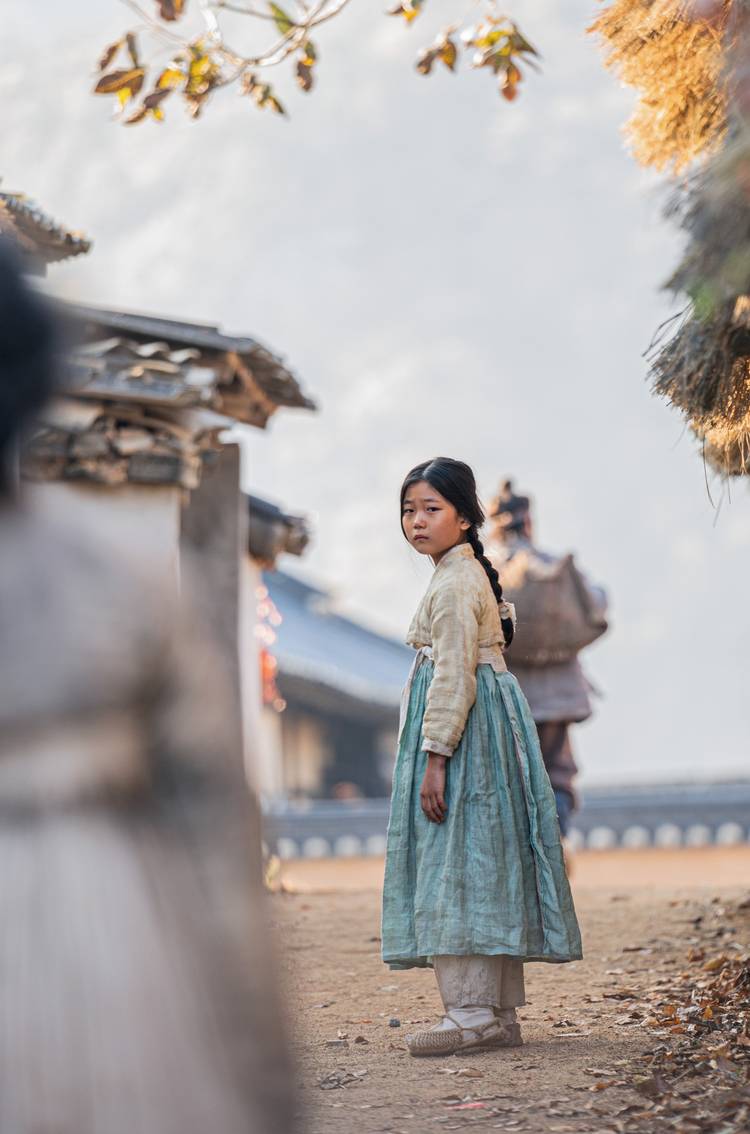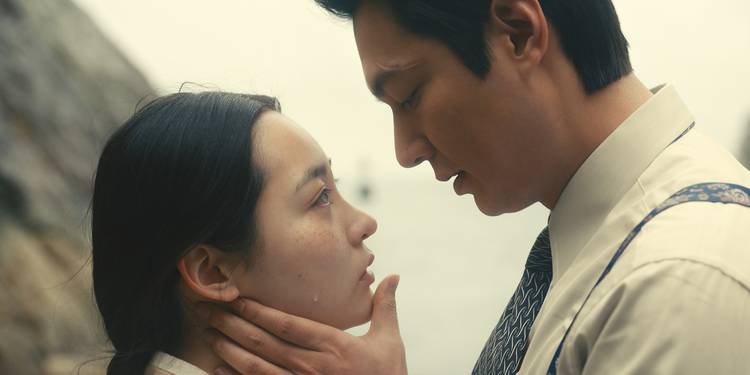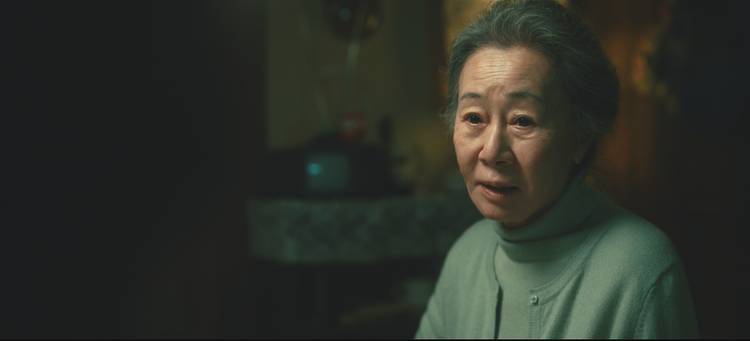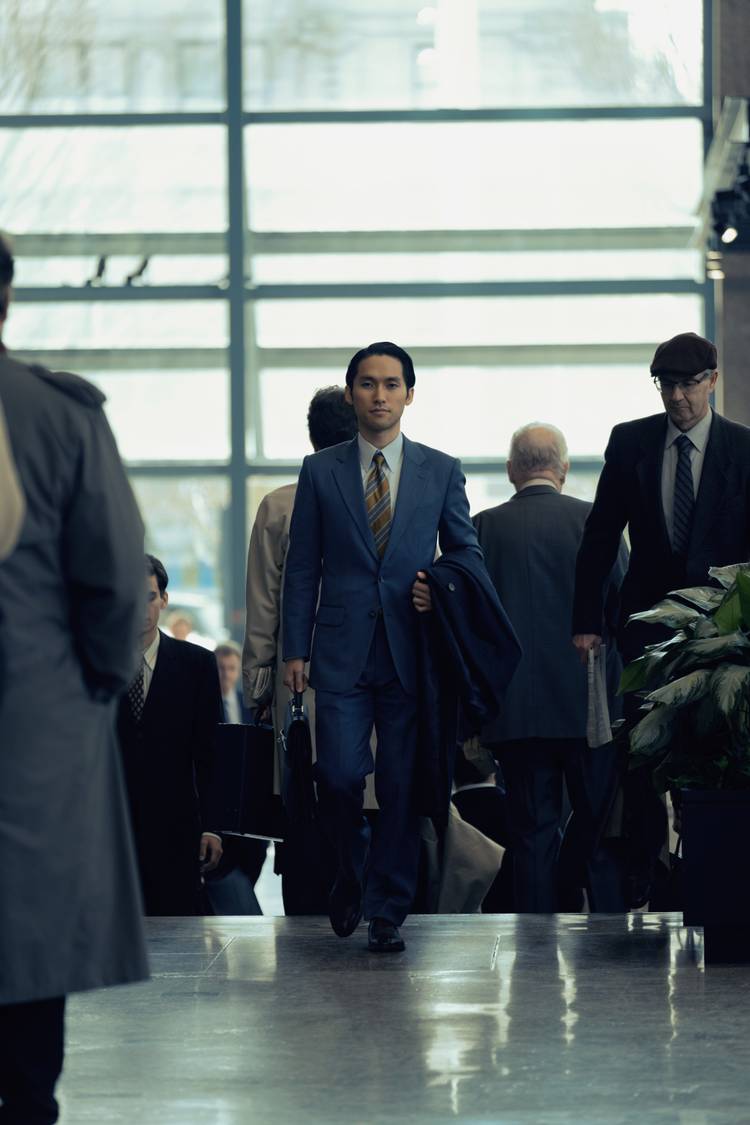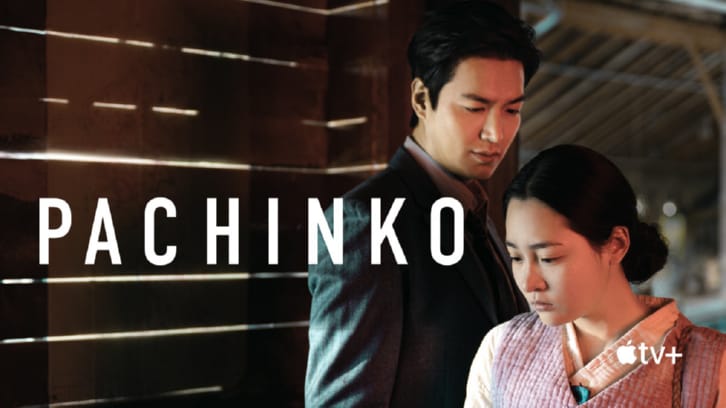
Based on Min Jin Lee's excellent 2017 novel, Pachinko, from Apple TV+, is a historical fiction TV show that follows several generations of a Korean family, in a story of familial strength and resilience. After Japan annexes Korea in the 1920s, they are forced to move to Japan, and face the adversity that entails. Split in several storylines, it simultaneously follows Sunja: a beloved daughter from a quiet fishing village, as she grows up and tries to survive in an unfriendly world, as well as once she has become a grandmother, which includes storylines about her grandson: Solomon. The show is gorgeously shot and well acted, and despite starting a little slowly and somewhat confusingly what with the split timelines and quite a few characters to become familiar with, it quietly takes root and becomes very engaging. The title sequence is endearingly lighthearted, which succeeds in offering some levity and especially hope, to an otherwise quite desolate story.
Yeongdo, where Sunja (played as a child by Yu-na Jeon) grows up, is a remote little village in which children don't often seem to make it to adulthood, and when they do, school is mostly optional, at least for young girls. Sunja's own father, Hoonie, had difficulties in finding a wife because of his cleft lip and limp. His family succeeds in making a living by taking in lodgers, which allows them to have a relatively stable financial situation. This also makes their situation enviable, since when Japan annexes Korea, many families lose everything. It also allows Hoonie to find a marriage arrangement, thanks to his family's status and the desperation in others, but he and his new wife Yangjin (Inji Jeong) struggle to have the children he so desperately wants. Yangjin would have given up, but Hoonie is a kind man with few desires, and she is unwilling to not let him have this one. Finally, after Yangjin brings her plea to the village, little Sungja makes her appearance into the world and immediately charms both her father and the fishermen she grows up around, with her quick wit and mischievousness. Sunja drives a hard bargain and isn't afraid to go head to head with her more conservative mother, who doesn't believe she should be getting pocket money even if it was thanks to her helping some of the fishermen make better deals.
"I'll tell Sunjo he isn't a good enough fisherman to give me money!"That same mother doesn't believe girls need to go to school either, and thinks Hoonie dotes on her too much. Hoonie's subsequent death, from tuberculosis, only drives that fact deeper: a heartbroken Sunja must help her mother take care of the lodgers and stay with the other girls. As Sunja (now played by Minha Kim, in her first role) grows up, a shadowy (but elegant, and finally adding some liveliness to an otherwise rather drab first episode) figure looms over the fish market: the fishbroker, Hansu (played by Lee Min Ho), a wealthy Korean man who moved to Japan and became rich. Hansu immediately notices Sunja as he observes her popularity in the market. He notices her even more, when she's the only one who refuses to bow down when the police comes, just like she did as a child. However, Sunja's first (and traumatic) encounter with Hansu comes after she gets assaulted by a couple of Japanese men who are up to no good. Sunja's mother had warned her about going alone to the market, but Sunja has a mind of her own and believed she didn't need anyone to protect her. It becomes clear that that time, unfortunately, is over now that Korea has fallen under the Japanese rule. In any case, Hansu comes to the rescue and it's not hard to see why Sunja immediately falls for him. I'll admit I didn't reread the book before watching the show, but I do remember being baffled at Sunja suddenly becoming enamored by Hansu because for some reason I pictured him as an overweight, goateed little man. Which, let me tell you, he is NOT. In the show, they have somewhat deep conversations about hopes and dreams, and his affection for her is obvious. As they start meeting by the water and eventually sleeping together, it becomes clear this isn't likely to end well. Even less surprising is the result of their little adventure: Sunja quickly becomes pregnant, but Hansu has suddenly disappeared without a trace, leaving a forlorn Sunja to wander around the market. Until, that is, a storm rolls in and brings Hansu back with it. Despite everyone scurrying around urgently to find shelter, Sunja and Hansu find a moment to reconnect despite the howling wind and sheets of rain, which is when she chooses to share her news. If at first you thought everything was going to end well based on Hansu's overjoyed reaction, well... you'd be wrong. He's only overjoyed because as it turns out, he's already married, and has an other family in Japan, but that family doesn't (yet) include a son. Sunja's situation offers an unexpected opportunity to finally have one, even if she's crushed after learning that the happily ever after was never in their futures. Especially since her marriage prospects weren't all that great in the first place, because of her father's health issues, which Hansu points out unkindly. In Hansu's defense though, he does trot out the "it's a marriage of convenience" argument, and he's still offering to take care of her and the child, and be with her, buying her a house in which she and her mother can live. Unsurprisingly however, Sunja isn't enthused about the deal, and promptly flees to the boardinghouse, in tears. This sets off the entire rest of the story, as Hansu will constantly loom in the background despite not being a part of Sunja's life anymore.
Enter: Isak (Steve Sang-Hyun Noh), a young, but sickly, minister who has come to stay at Sunja's mother's boardinghouse before he travels to Osaka to join his brother. Isak almost immediately is made aware of Sunja's situation since the boardinghouse's walls are very thin and Sunja sobs as she reveals to her mother exactly what happened, but never revealing who this happened with. Isak first wonders why Sunja doesn't give up the child for adoption, but it quickly appears that he's willing to do much more than help her with that option, he's actually ready to marry her and raise the child as if it were his. Over the course of the series, we follow Sunja as she moves to her new home in Tokyo and the difficulties she and her family face in Japan, struggling to make a living. Which brings us to the rest of the story: Sunja (now played by Youn Yuh-jung, who won an Oscar last year for her role in Minari) is now living in Osaka with her dying sister in law, and is a mother herself to Mozasu, who has made a fortune in the pachinko business, raising his son Solomon (Jin Ha) in a much wealthier setting than his own childhood. We follow Solomon in New York, in 1989, as he is initially denied a promotion at the bank he works for, for obscure reasons involving him not having enough seniority. Not to be deterred, he finds a compromise by promising his bosses that he'll be the one to make bring in a deal with the only resisting Korean landowner who is preventing a new hotel complex from going through by refusing to sell, and promptly sets off for the bank's Tokyo office. The trip quickly makes him realize that many prejudices against Koreans remain even in 1989 Japan. After failing to convince the landownser, Solomon finally resorts to desperate sales techniques, as he brings in his grandmother, Sunja, to try and convince the reluctant woman to sell. In this particularly heartbreaking scene, Sunja's story resonates with the old woman's, what with her going back to school because she was never allowed to learn to read or write as a young girl, as well as the fact that Sunja recognizes the rice's specific taste and texture, from Korea, when Solomon can't tell the difference. In the end, it seems that his unorthodox technique worked, since the old woman does sell, and the Tokyo office manager (Jimmi Simpson) congratulates him... maybe a little prematurely. Solomon is also having personal issues, in that after initially wondering if Hana, his father's girlfriend's daughter, whom he also had an intimate relationship with, is even alive after her drug-abuse issues, he now constantly receives distraught calls from her. Hana seems to be in the habit of disappearing on people, including her mother Etsuko, and she and Solomon keep each other appraised of any Hana-related developments, as they both care for her wellbeing. After Sunja's sister in law dies, Sunja realizes she desperately wants to go back to Korea to spread her sister in law's ashes there, which means bringing everyone back. When Sunja finally sets foot back in Korea, asking to stop the cab by a lovely moonlit beach, her emotion at finally coming back home filters through so poignantly that one almost feels there with her.
The show is almost perfectly cast, especially with its three Sunjas who completely complement each other and succeed in bringing us through Sunja's life by keeping the same raw emotion and mannerisms throughout. One particularly efficient feature is the fact that the Korean subtitles are coded in yellow and the Japanese in blue, which not only allows for an easier interpretation, but also makes it possible to distinguish interruptions. Overall, the show is a beautiful rendering of an especially difficult time, which it never forgets but still succeeds in letting its characters find hope.
All in all, a solid adaptation that makes for a series slowly unfurling the lives of a complicated family. The show doesn't adress everything in the book, which makes me wonder if this will, in fact, mean that a follow up season is planned. Are you enjoying this as an adaptation of the book? Would you have changed/included anything else? Or did you go in blind, and in that case, what did you think? As usual, sound off in the comments!


